Wolf BKK won Grand Prix of the Year at MAD STARS with a madcap story, Uncle KFC’s Rice Bowl, for KFC. A standout example of absurd humour, it was grounded in a human truth – the answer, “Anything; up to you,” to the question, “What do you want to eat?” is almost invariably a trap – a truth that is universally amusing. It solved an international brand’s problem with a deep understanding of its local culture. It kept audiences engrossed for five minutes. The vote for it to win Grand Prix of the Year was a hair’s breadth away from unanimous.
The Behind the Work answers supplied by Wolf BKK co-founder and chief creative officer, Torsak Chuneprapar, demonstrate why this agency is proving itself to be a creative star in the industry.
Where did the idea for Uncle KFC’s Rice Bowl come from. What was the problem it needed to solve? How did the idea evolve during its development?
Torsak Chuneprapar: It started directly from the client’s brief. They wanted to promote a price cut for rice meals from 69 THB to 59 THB, and to encourage Thais to consider KFC as a lunch option. Normally, people in Thailand only eat KFC on special occasions. So we asked ourselves, “What do Thais usually eat for lunch?”
We found that most people eat at casual rice shops, the kind of neighbourhood places where you’re close to the owner like “Auntie’s place,” “Brother’s place,” or “Uncle’s place.” Compared to that, KFC, an American fried chicken chain, felt distant. Our challenge was to make KFC feel closer and more relatable to Thai people.
In developing the idea, we wanted Colonel Sanders to become a warm, approachable “Uncle.” We collaborated with Suneta House to find an actor who could bring this to life in a fun way. We even included unscripted bloopers like the actor struggling to pronounce “sushi” which added charm to the film. Credit to the director for making it all come together.


How important is Colonel Sanders in the commercial? In what ways?
Torsak Chuneprapar: He is absolutely essential. In this story, Colonel Sanders needed to be portrayed as a warm, approachable uncle human, relatable, and easy to connect with. This was crucial to resonate with Thai audiences, who are used to eating lunch at their familiar neighborhood rice shops, where the owners feel like family.
This direction was, in fact, quite different from the global image of Colonel Sanders, who has recently been positioned as a stylish, muscular, almost superhero-like figure. We had many discussions with KFC to explain that in the Thai cultural context, showing the Colonel as a lovable, down-to-earth character would add real power to the campaign.
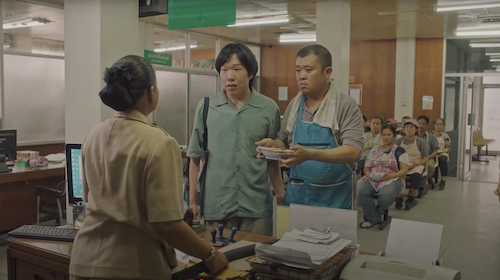
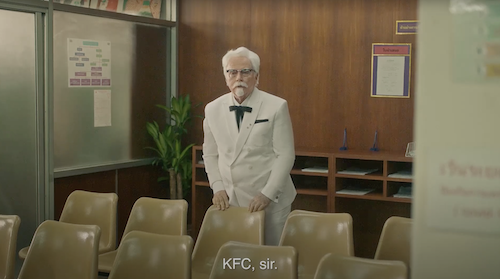
The campaign stands out for its difference in the collection of global campaigns for KFC. How important do you think cultural nuance/ local understanding is in a campaign?
Torsak Chuneprapar: It’s absolutely crucial. At Wolf, we place a strong emphasis on this. If we want to solve a problem effectively, we first need to understand where that problem really comes from and every market has its own unique context.
Cultural nuance and local ways of living shape how people see and respond to brands. If we overlook that, our work risks missing the mark. But when we truly understand the culture and everyday life of the people we’re speaking to, our ideas have the power to genuinely solve problems and connect in a meaningful way.
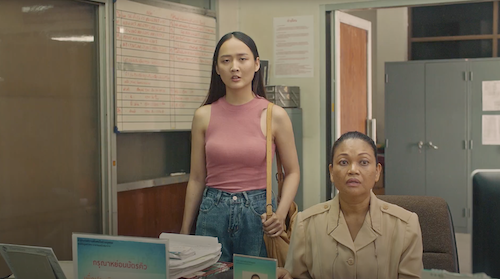
Five minutes is a long commercial. What do you think makes it successful?
Torsak Chuneprapar: It really is long. We didn’t even realise it at first. When the team sat in the edit room with the director, we were enjoying it so much that by the time it ended, we thought it had only been about two minutes. When the director told us it was five, we were genuinely surprised it never felt that long. That’s when we decided to present it to KFC exactly as it was, because we believed the audience would enjoy it just as much.
What made it work, I think, is that the team designed it to hold attention from start to finish. From the very beginning, it taps into a universal lunchtime question: “What should we eat today?” Then it flows into a very relatable scenario for Thai men their girlfriends refusing to decide and insisting he choose until she’s happy. When he finally suggests KFC and she says no, it only makes people more curious to see what happens next. That rhythm keeps repeating, pulling viewers along the entire way.
What would you say to people who still say humour is dangerous in advertising? What makes it powerful? What mistakes are there in humour to beware of?
Torsak Chuneprapar: Dangerous? Honestly, I’ve never thought of it that way. To me, humour is powerful because at its core, advertising is interrupting people’s downtime. Most of the time, they’re scrolling on their phones to relax, to watch or read something they enjoy. And right at that moment, we show up to sell them something.
If all we do is push a product without giving them anything in return, of course they’ll dislike it. Humour changes that dynamic. If, in the middle of their break, we can give them something entertaining a laugh, a smile then even if we’re selling, they’ll feel good about it. Ads should be something people actually want to watch, and that means we have to work hard to make them worth their time. Personally, I even keep a mental list of brands that force unskippable YouTube ads on me and I avoid buying them.
As for mistakes to avoid: humour should never come at someone’s expense. It shouldn’t offend, mock, or target a particular group. It should bring people in, not push anyone away.
What does it mean to the agency to have the Grand Prix of the Year at MAD STARS? What do you feel is the role of awards like this, and advertising awards in general?
Torsak Chuneprapar: It means a great deal to everyone involved not just our agency, but also the KFC team and our production partners. This project was tough. There were several points along the way when it almost didn’t happen. But in the end, everyone pushed through, solving problems together until we made it to the finish line.
For a small agency of just 22 people, winning a Grand Prix of the Year proves that when you give everything to the work, you can achieve something truly world-class no matter the size of your team.
As for the role of awards, I believe they serve as a benchmark. They show us where we stand on the global stage, and more importantly, they remind us to keep pushing ourselves to maintain high standards. At the end of the day, that pursuit of excellence isn’t just for the awards it’s for our clients, who trust us with their brands.
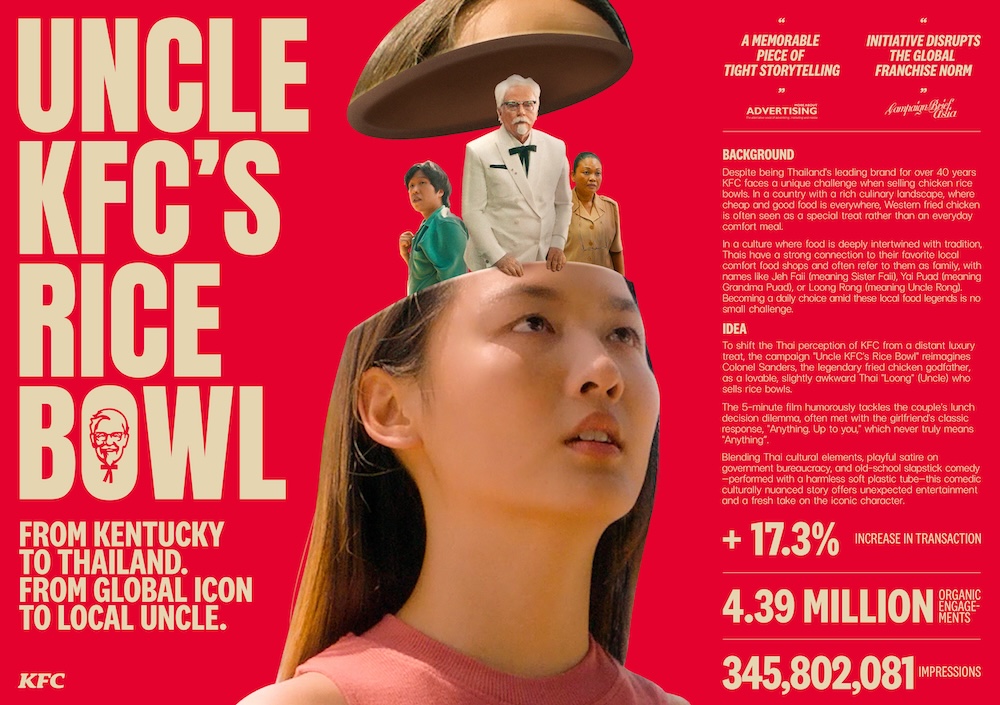
BTS:
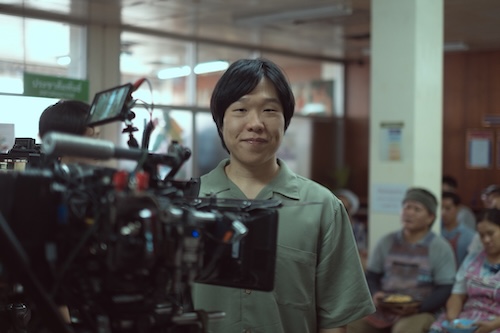
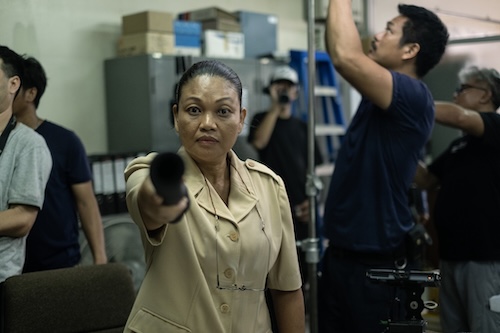
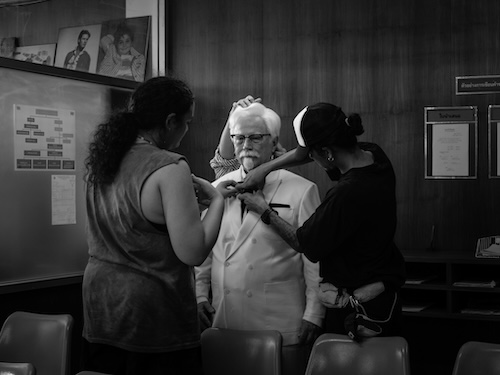
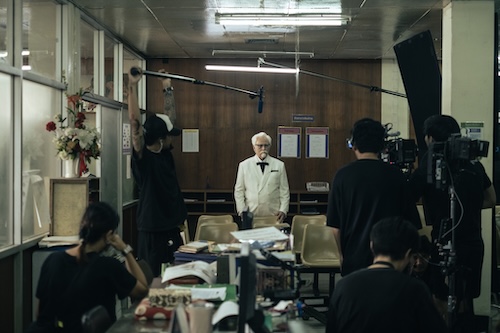
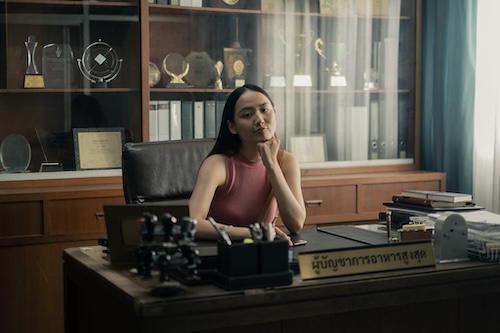


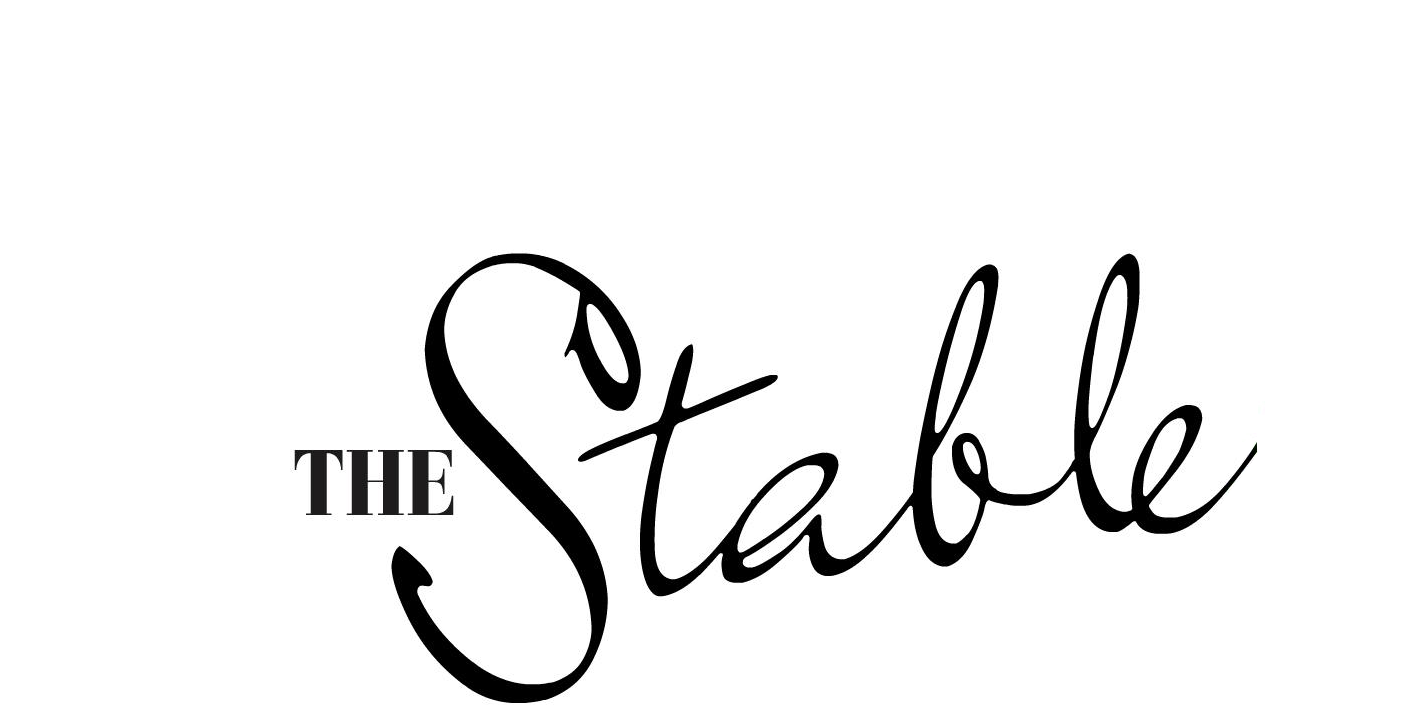


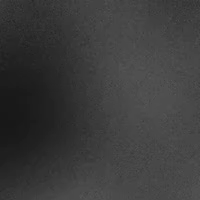









Leave A Reply